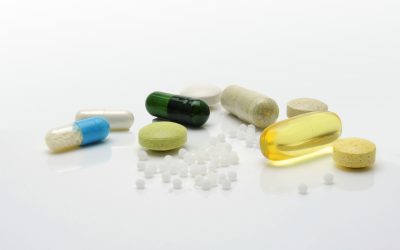Alcohol and Fertility
Everything You Should Know While TTC
So you’ve been trying to conceive with no luck. Perhaps you’ve been trying to make positive changes in your life in order to improve your chances of success. You’ve kicked your poor dietary habits to the curb, you’re exercising, you’re taking care of your mental health, but you can’t give up that glass of wine at the end of the night.
If this sounds like you, you’re not alone. Abstaining from alcohol is incredibly difficult. Not only does alcohol provide an outlet to many, but it is so intimately tied to most of our social events. Admitting that you’re not drinking raises many questions and queries. Most terrifying of all, maybe you’ll have to admit that you’ve been struggling with infertility.
For many patients we see, giving up alcohol is the hardest part of preparing for pregnancy. Obviously alcohol and fertility do not go hand in hand. That said, if you choose to continue to drink, what are the risks it poses when it comes to your fertility? Can alcohol negatively impact fertility, and if so, how much alcohol is too much?
Drinking During the Preconception Period
Alcohol’s Impact on Natural Conception
Unfortunately for all you wine lovers out there, the adverse effects of alcohol on fertility have been well documented1. Research shows that alcohol consumption can significantly delay time to pregnancy1. In fact, it was found that women who consume as little as two alcoholic drinks per day are at a much higher risk of infertility compared to women who have less than one drink per day3. In men, there is a dose-effect and time-effect relationship between alcohol and semen quality5. This means that sperm volume, motility, and survival are all negatively correlated with increasing alcohol intake5,6. This correlation was found in men drinking as little as 5 drinks per week6. Moreover, increased alcohol consumption has also been linked to the increased need for fertility examinations in both women and men,3.
Drinking Before IVF
We now know alcohol has a negative impact on natural conception, but what if you’re about to undergo IVF? Does alcohol affect IVF success rates? Research shows that women who drink four drinks per week have 16% less odds of a live birth with IVF compared to women who drink less than this7. Moreover, when both partners are consuming four drinks per week, the odds of a live birth are 21% lower compared to non-consuming couples7. Female alcohol consumption 1 year before IVF has also been associated with a 13% decrease in the number of eggs retrieved, an increased risk of not achieving pregnancy by 2.86 times, and an increased risk of miscarriage by 2.21 times8. In men, one additional drink per day increases the risk of a failed IVF cycle by 2.28-8.32 times8. Additionally, men who drink the month of their IVF procedure have been found to have a 2.7-38.04 times greater risk of miscarriage8. Needless to say, if you’re about to undergo IVF it’s best to moderate your alcohol consumption.
How Much is Too Much?
Binge Drinking vs. Your Daily Drink
You can probably understand by now that alcohol is inherently bad for your fertility. But, just how much is too much? Moreover, what’s worse – binge drinking or regular daily intake?
Let’s start with the basics, what is binge drinking? In men, five or more drinks on one occasion classify as binge drinking, whereas in women the number of drinks drops to four9. Binge drinking has been associated with MANY chronic health concerns and is never recommended. So what about a casual daily drink? Unfortunately, new research has brought to light that regular drinking can be just as damaging to your health as binge drinking10. Researchers have concluded that alcohol-free days each week should be encouraged10.
When talking about fertility specifically, how much is too much? Based on the research we have so far, even as little as two drinks per day and/or four drinks per week in women has negative impacts on fertility3,7. In men, semen parameters begin to decline with as little as five drinks per week6; with 4 drinks per day, decreased the production of testosterone and increased production of estrogen also occurs 5,6.
Alcohol and Fertility: What IS Safe?
So what is SAFE when trying to conceive? We hate to burst your bubble, but most fertility clinics will recommend no more than 1-2 drinks PER WEEK for both partners. Some researchers have gone so far as to say abstaining altogether is the best course of action3. Although you may hate to hear it, the less you drink the better!
How to Handle the Social Consequences of NOT Drinking
We understand that abstaining from alcohol, or even just reducing consumption, can be exceptionally difficult. For some reason, when you choose not to drink people start asking A LOT of questions. We’ve laid out some tips for you to help navigate the social consequences that might come with abstaining:
- If you’re feeling courageous – be honest. There is NO shame in admitting that you’re trying to get pregnant, or that you’ve been struggling.
- If you’re not feeling courageous (no shame in this either), tell people that you’re trying to get healthy. Many diets, detoxes, you name it, advocate abstinence from alcohol. People will likely applaud you for trying.
- A very easy tip is just to pretend you are drinking. Order a virgin drink at the bar and tell no one. This way you won’t have to explain anything.
- If alcohol serves more of a stress-relieving function for you, try engaging in other relaxing activities. Take a bath when you get home, meditate, or watch your favourite TV show. Do anything that will help you to de-stress. If you need some more stress-reducing strategies, click here
- Suggest alcohol-free activities to your friends instead of visiting your local bar. Rock climbing, going to the movies, or even making dinners together at home are all great alternatives.
A Final Word on Alcohol and Fertility
Despite the research presented, some of you might be thinking that you know tons of couples who regularly drank and successfully conceived. Though this may be the case we want to emphasize that everyone is different. As we always say, health care should be individualized and should be unique to each person’s needs. The same holds for alcohol and fertility. Some people may be very susceptible to the health consequences of alcohol, whereas some people are not. When you’ve been struggling with infertility, it’s hard to identify all the subtle factors that may be contributing. As a result, it’s necessary to get rid of everything that might be having a negative impact, and that includes alcohol. We completely understand that kicking this habit is not an easy one. Luckily, we’re here to support you the whole way through. If you’re trying to conceive and would like help reducing your alcohol consumption, I am here and happy to help!
With love and in health,
Priya
References
- Ruder E, Hartman T, Goldman M. Impact of oxidative stress on female fertility. Current Opinion in Obstetrics and Gynecology. 2009;21(3):219-222.
- Barbieri R. The initial fertility consultation: Recommendations concerning cigarette smoking, body mass index, and alcohol and caffeine consumption. American Journal of Obstetrics and Gynecology. 2001;185(5):1168-1173.
- Eggert J, Theobald H, Engfeldt P. Effects of alcohol consumption on female fertility during an 18-year period. Fertility and Sterility. 2004;81(2):379-383.
- Tolstrup J, Kjaer S, Holst C, Sharif H, Munk C, Osler M et al. Alcohol use as predictor for infertility in a representative population of Danish women. Acta Obstetricia et Gynecologica Scandinavica. 2003;82(8):744-749.
- Gude D. Alcohol and fertility. Journal of Human Reproductive Sciences. 2012;5(2):226.
- Jensen T, Gottschau M, Madsen J, Andersson A, Lassen T, Skakkebaek N et al. Habitual alcohol consumption associated with reduced semen quality and changes in reproductive hormones; a cross-sectional study among 1221 young Danish men. BMJ Open. 2014;4(9):e005462-e005462.
- Shulman L. Effect of Alcohol Consumption on In Vitro Fertilization. Yearbook of Obstetrics, Gynecology and Women’s Health. 2011;2011:251-252.
- Klonoff-Cohen H, Lam-Kruglick P, Gonzalez C. Effects of maternal and paternal alcohol consumption on the success rates of in vitro fertilization and gamete intrafallopian transfer. Fertility and Sterility. 2003;79(2):330-339.
- CDC – Fact Sheets-Binge Drinking – Alcohol [Internet]. Cdc.gov. 2018 [cited 26 January 2018]. Available from: https://www.cdc.gov/alcohol/fact-sheets/binge-drinking.htm
- Daily Drinking Rather Than Binge Drinking Is Biggest Risk Factor In Serious Liver Disease, New Study Finds [Internet]. ScienceDaily. 2018 [cited 26 January 2018]. Available from: https://www.sciencedaily.com/releases/2009/03/090319104031.htm
I want to help you get there. The key to your fertility lies within you.
Let's Awaken it!
More Reading
Naturopathic Medicine in Fertility
Whether you are just starting to try to get pregnant, struggling with getting pregnant or suffering from recurrent miscarriages, a fertility naturopathic doctor can help you along your fertility journey. Naturopathic doctors are trained healthcare professionals with...
The Role of Melatonin in Fertility
Most of us have heard about melatonin in the context of sleep, as a supplement that can impact our circadian rhythm. However, this hormone also plays an important role in female fertility. What is Melatonin? Melatonin is a hormone made by the pineal gland in...
Simple Tips to Improve Your Chances of Conceiving
It’s easy to get caught up in the minor details of what we could be doing better when trying to get pregnant. This can lead to constant thoughts around the effects that our daily activities have on our chances. This self-criticism can feel overwhelming and...




Share This
Share this post with your friends!